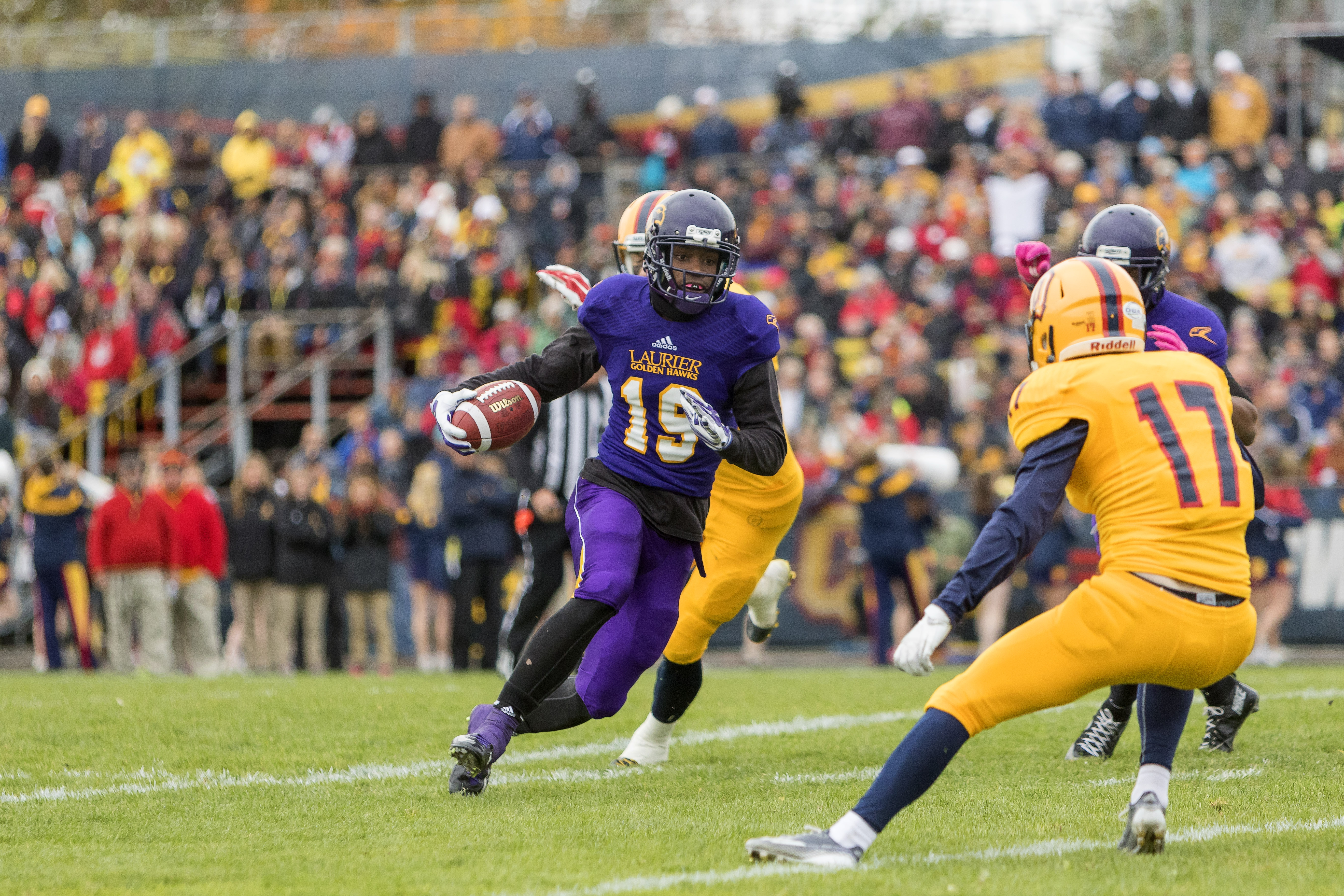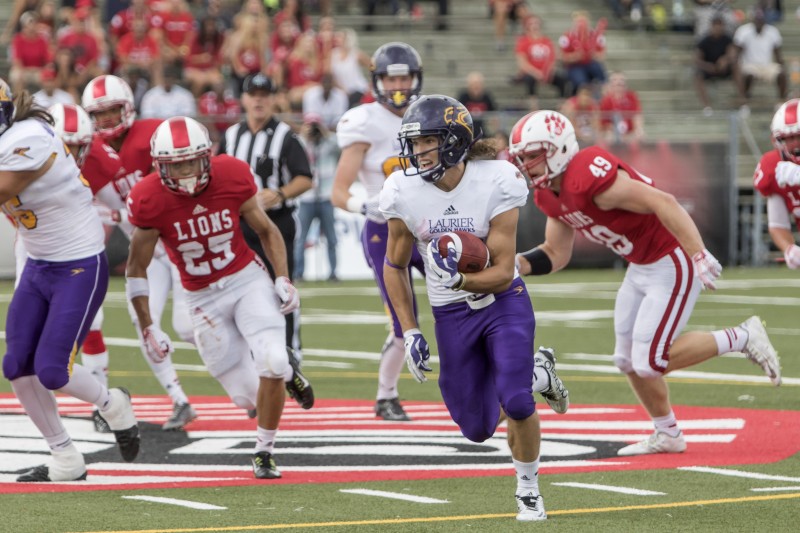Laurier football recruiting class impresses

Hawks sixth in average per player and ninth in recruiting, according to Canada Football Chat

After making it to the semifinals in 2015 after beating the McMaster Marauders in the quarter-final, the Wilfrid Laurier men’s football team has made huge strides in their recruiting.
According to CanadaFootballChat.com, Laurier ranked ninth in recruiting total and sixth in average per player recruit. CFC bases their rankings off a score interval for each player within the #CFC 100 Class 2016 Rankings list.* Each player is given a certain amount of points.
Depending on the number of recruits to a school that have confirmed, and the amount that is listed on the top 100, the ranking for each team can vary.
Peter Baxter, the director of athletics and recreation at Laurier had this to say regarding the placement.
“I think it speaks actually to the calibre of coaching that we have,” Baxter said. “With Mike Faulds as our head coach, who’s brought our team on the rise in just three short years and we made playoffs, we beat [McMaster], that helps a lot with recruiting. “
Baxter stressed the football staff as a major unit in the high ranking among top-Canadian teams such as Laval University and the University of British Columbia.
Baxter mentioned assistant head coach and defensive coordinator Ron VanMoerkerke, who he said has put a lot of young men as well as student-athletes into the Canadian Football League.
Baxter also gives credit to Dwayne Cameron, the special teams coordinator and recruiting coordinator. The Golden Hawks’ philosophy is to invest in people, and that winning is not simply the end score when the whistle blows, but the broader achievements of the players’ lives.
“You start with good coaches, they invest in good student-athletes, and from there we get better and we win,” said Baxter.
To Faulds, Laurier’s rank allows them to compete with bigger schools and more established programs. Two years removed from a 1-7 season, with growth still in the works for the team, the new recruits see it as a big sell — the school is on the rise and they want to be a part of it.
“I think recruits are really seeing the progress we’ve made over the last few years. We’ve come a long way since that 1-7 season a few years ago, winning the playoff game this past year, making it to the [Ontario University Athletics] semifinals,” Faulds said.
But the surrounding systems for athletes are just as important. Baxter said that statistics shows the student-athletes’ graduation rate is higher than non-athletes and that measure at a university is the most important because their degrees will take them a lot further than their athletic field. But that doesn’t diminish what they are going to learn on the field.
“There is no better incubator than learning the spectrum of emotion, how to deal with failure, how to deal with adversity, how to deal with success and some people don’t know how to deal with success and that is what sport can teach you,” he said. “Every time you play, there’s a result at the end of the day and then you got to go back at it. You either won or you lost.
“Even if you won and lost, you got to go back at it the next game because there’s no such thing as a rearview mirror in football.”
* This article has been altered from its original version.


